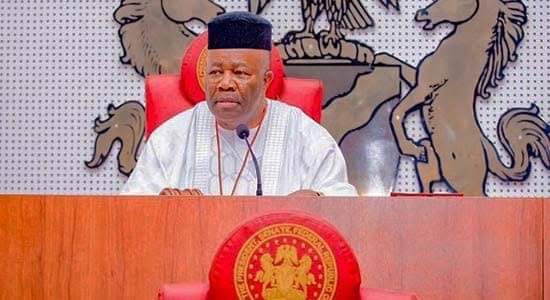Tinubu’s Swearing-in – Does God Still Answer Prayers?
Nota bene: Before delving deeper into this topic, it is crucial to acknowledge that discussing matters related to God’s will can be sensitive and evoke strong emotions. This article does not seek to question the existence of God or undermine anyone’s faith. Rather, it aims to present different perspectives and provide food for thought.
Nigeria is a country known for its religious diversity, with Islam and Christianity being the dominant faiths. Faith holds a central place in the lives of many Nigerians, and it often intersects with their political beliefs and aspirations. It is not uncommon for religious leaders and individuals to seek divine guidance and intervention in political matters, including elections and governance.
The recent Nigerian election and the scheduled inauguration of Tinubu as the country’s next president (today) have raised questions about the role of divine will and the power of prayers in politics
When Tinubu announced his intention to succeed President Muhammadu Buhari in January 2022, many dismissed it as a far-fetched dream. Even within his own party, the All Progressives Congress (APC), there was opposition to his candidacy. The selection of a fellow Muslim, Kashim Shettima, as his running mate further fueled criticisms, especially among Christian faithful who believed it was time for a Southern Christian to assume the presidency.
The emergence of Tinubu as the APC candidate sparked a Muslim versus Christian narrative in the political discourse. Meanwhile, other prominent parties also fielded Muslim candidates, neglecting the perceived need for religious and regional balance. This further deepened the divide among Nigerians, particularly among Christian supporters who rallied behind Peter Obi of the Labour Party.
During the election campaigns, fervent prayers were offered, and religious leaders gave prophecies regarding the outcome. Many claimed that God had revealed to them that Peter Obi would emerge victorious, and some even declared that they would renounce their faith if their prophecy did not come to pass. The anticipation and emotional investment in Obi’s success were evident, with campaign efforts targeted specifically at the Christian community.
To the surprise of many, the Independent National Electoral Commission (INEC) announced Tinubu as the winner of the election, having received “the highest number of votes.” This outcome left people, especially those who had placed their faith in Obi’s victory, feeling perplexed and questioning the efficacy of their prayers. It led to introspection and an examination of the role of divine intervention in politics.
While it is essential to recognise that God’s will is beyond human comprehension, it is also important to understand that God grants power to whomever HE chooses. The victory of Tinubu challenges the notion that prayer alone determines political outcomes. The biblical principle of God honoring His word more than His name reminds us that His plans and purposes may not align with human expectations or desires.
The inauguration of Tinubu as Nigeria’s president has sparked contemplation on the interplay between divine will and political outcomes.
It is crucial to remember that the ways of God are often beyond human comprehension.
While prayers and prophecies have their place, they do not guarantee specific results in the realm of politics. As Nigerians move forward, it is important to engage in meaningful dialogue, bridge religious divides, and focus on inclusive governance for the betterment of the nation.
Ameh Comrade Godwin writes from Abuja










































